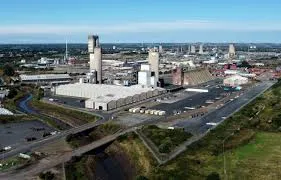
Aug . 13, 2024 19:31 Back to list
Top Suppliers of High-Quality Natural Organic Fertilizers for Healthy Plant Growth and Sustainability
Best Natural Organic Fertilizers for Plants A Guide for Suppliers
In the ever-evolving world of agriculture and gardening, the demand for natural organic fertilizers has seen a remarkable surge. These fertilizers not only promote plant health but also contribute to environmental sustainability. Suppliers aiming to meet this growing demand must stay informed about the best natural organic fertilizers available on the market today. This article explores some of the top options, their benefits, and how suppliers can effectively promote them to gardeners and farmers.
Why Choose Natural Organic Fertilizers?
Natural organic fertilizers are derived from plant, animal, or mineral sources, making them an excellent choice for environmentally conscious gardeners. Unlike synthetic fertilizers, which can lead to soil degradation and water pollution, organic fertilizers improve soil health, enhance microbial activity, and contribute to sustainable farming practices. They release nutrients slowly, reducing the risk of nutrient runoff and promoting long-term plant growth.
Types of Best Natural Organic Fertilizers
1. Compost Compost is one of the most popular organic fertilizers. It is produced from decomposed organic matter, including kitchen scraps, yard waste, and manure. Compost enriches the soil with nutrients, improves soil structure, and increases its moisture-retaining capacity. Suppliers can provide customers with tips on how to create and use compost effectively, making it a versatile option for various gardening needs.
2. Manure Animal manure is a rich source of nitrogen, phosphorus, and potassium (N-P-K), essential nutrients for plant growth. Well-composted manure from cows, chickens, or horses can be an excellent organic fertilizer. Suppliers should emphasize the importance of using aged or composted manure to avoid burning plants and introducing pathogens.
3. Bone Meal A byproduct of the meat industry, bone meal is rich in phosphorus and calcium, promoting strong root development and flowering in plants. This organic fertilizer is especially beneficial for flowering plants, root vegetables, and fruiting shrubs. Suppliers can offer guidance on application rates to help customers achieve the best results without over-fertilizing.
4. Fish Emulsion Fish emulsion is a liquid fertilizer made from processed fish parts, offering a balanced source of nutrients along with beneficial trace elements. Its high nitrogen content makes it ideal for leafy vegetables and rapid growth. Suppliers can promote fish emulsion as a quick-acting solution for nutrient-deficient plants.
best natural organic fertilizer for plants suppliers

5. Kelp Meal Kelp meal is derived from seaweed and is an excellent source of micronutrients and plant growth hormones. Its role in improving plant stress tolerance and enhancing overall vigor makes it a valuable addition to any organic fertilizer lineup. Suppliers should highlight its benefits in promoting healthy root systems and drought resistance.
Marketing Natural Organic Fertilizers
For suppliers, effectively marketing natural organic fertilizers involves educating customers about the benefits and proper usage of these products. Here are some strategies
- Workshops and Demonstrations Hosting workshops can engage customers and provide hands-on experience with organic fertilizers. Demonstrations showcasing the impact of organic fertilizers on plant health can reinforce their value.
- Informative Content Create informative brochures or online content discussing different types of organic fertilizers, their benefits, and application techniques. This can help customers make informed decisions, leading to increased sales.
- Customer Testimonials Showcase success stories from satisfied customers who have used natural organic fertilizers. Personal stories can resonate with potential buyers and build trust in your products.
- Sustainability Initiatives Highlight the eco-friendly aspects of your fertilizers. Sustainability is a major selling point for many consumers today, and showcasing how your products contribute to a healthier planet can attract a loyal customer base.
Conclusion
The demand for natural organic fertilizers is on the rise, making it an opportune time for suppliers to expand their offerings. By understanding the different types of organic fertilizers and effectively marketing their benefits, suppliers can play a crucial role in promoting sustainable gardening and farming practices. A focus on education and customer engagement will build lasting relationships and ensure the success of both suppliers and gardeners alike.
-
Premium Organic Manure Compost for Eco Gardens
NewsAug.01,2025
-
Organic 10-10-10 Fertilizer | Balanced Plant Nutrients
NewsJul.31,2025
-
Premium Amino Acid Fertilizer | Rapid Plant Growth Booster
NewsJul.31,2025
-
10 10 10 Fertilizer Organic—Balanced NPK for All Plants
NewsJul.30,2025
-
Premium 10 10 10 Fertilizer Organic for Balanced Plant Growth
NewsJul.29,2025
-
Premium 10 10 10 Fertilizer Organic for Balanced Plant Growth
NewsJul.29,2025
